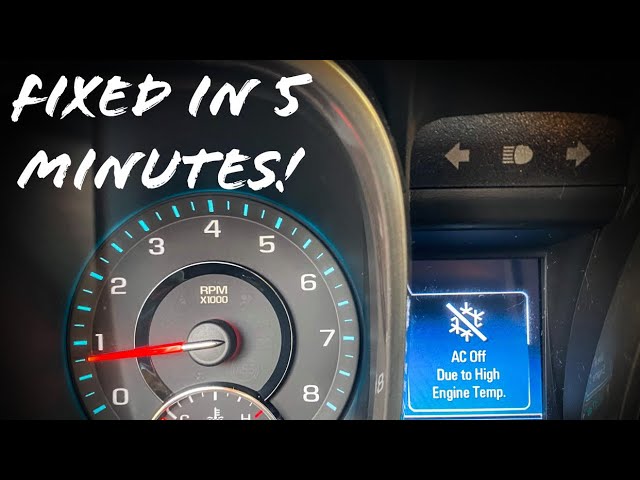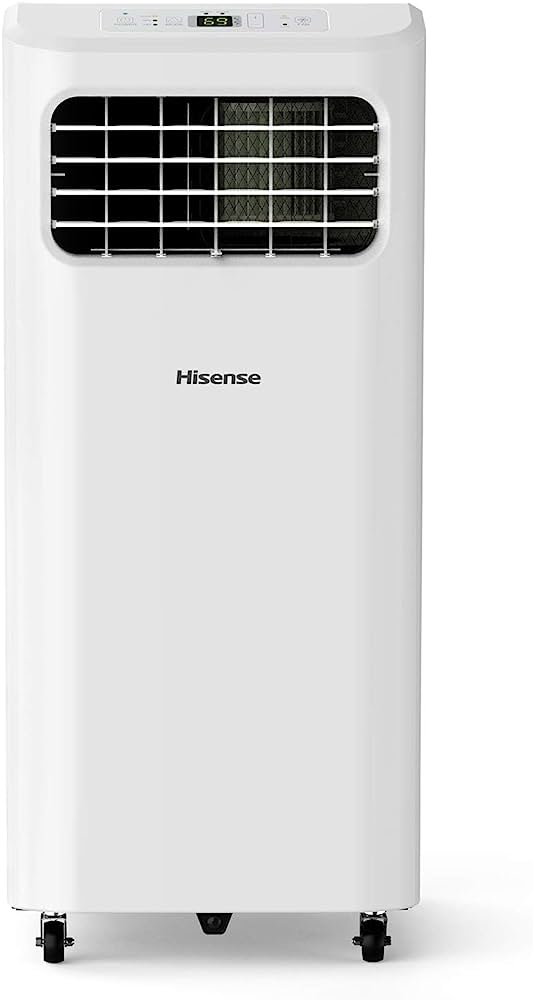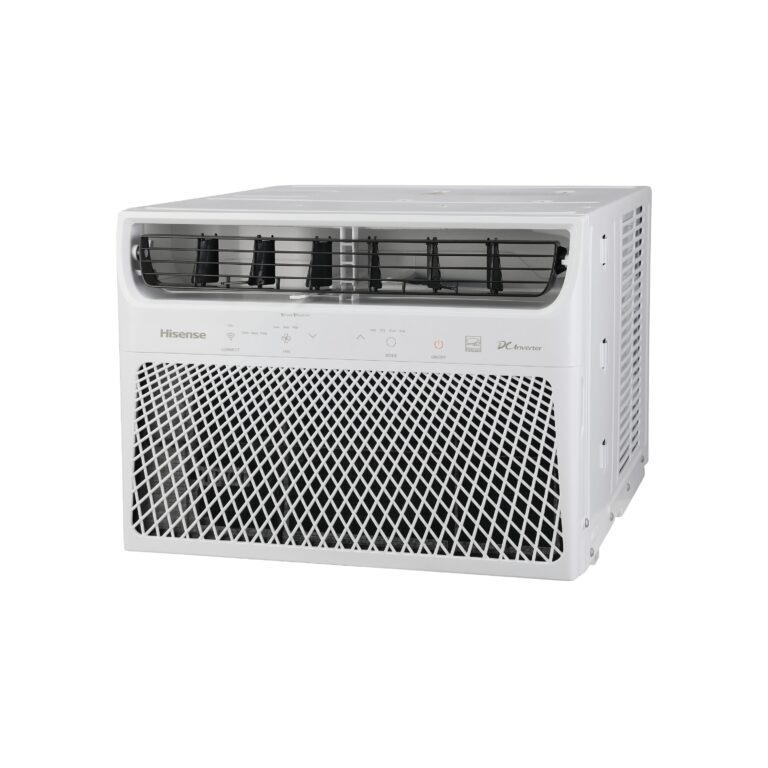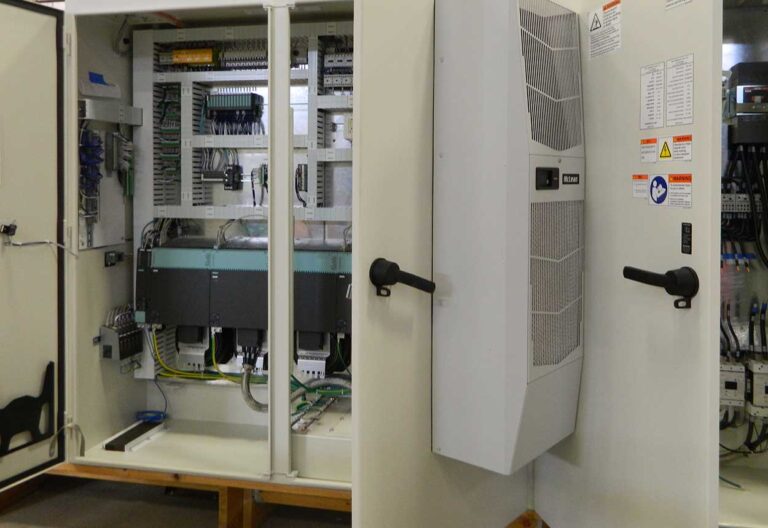AC Off Due To High Engine Temp Gauge Not Working: Troubleshoot Now
The AC turns off due to high engine temperature, and the gauge not working indicates a possible sensor issue. Ignoring this can lead to severe engine damage.
High engine temperature can cause significant issues, including the automatic shutdown of the AC system to protect the engine. The AC system relies on proper engine cooling to function efficiently. A malfunctioning temperature gauge could indicate a faulty sensor or wiring issue.
It’s crucial to address this problem promptly to avoid potential engine damage. Regular maintenance and timely repairs ensure your vehicle runs smoothly. Ignoring these signs can lead to costly repairs and inconvenience. Always monitor your vehicle’s temperature gauge and address any irregularities immediately to maintain optimal performance and safety.

Credit: m.youtube.com
Common Causes
When your AC is off due to high engine temperature, and the gauge is not working, understanding the common causes is crucial. This issue can stem from various factors. Below are the most common causes.
Faulty Thermostat
The thermostat regulates the engine’s temperature. A faulty thermostat can cause the engine to overheat. It might stick in a closed position, restricting coolant flow. This will make the engine temperature rise quickly. If the thermostat fails, the gauge won’t show the correct temperature.
| Symptom | Effect |
|---|---|
| Stuck Closed | Engine Overheats |
| Stuck Open | Engine Runs Cold |
Coolant Issues
Coolant is essential for maintaining engine temperature. Low coolant levels can lead to overheating. Leaks or evaporation often cause low coolant levels. Air pockets in the coolant system can also cause temperature gauge issues. These air pockets prevent proper coolant flow. This can lead to inaccurate temperature readings.
- Check for coolant leaks.
- Inspect coolant levels regularly.
- Ensure there are no air pockets.
Using the right type of coolant is also important. Different engines require specific types of coolant. Always refer to the vehicle’s manual for the correct type.
Initial Checks
Experiencing an AC off due to high engine temp can be alarming. The first step is to perform some initial checks. These checks will help identify the root cause. Start with simple inspections.
Inspect Coolant Levels
Coolant levels play a crucial role in engine temperature. Open the hood and locate the coolant reservoir. Ensure the engine is cool before opening it. Check the coolant level against the marked indicators.
Here is a simple table to help you understand the coolant levels:
| Indicator | Coolant Level |
|---|---|
| Full | Coolant reaches the “Full” mark |
| Low | Coolant below the “Low” mark |
If the coolant is low, add the correct type. Always use the recommended coolant for your vehicle. Low coolant levels can cause the engine to overheat. This could explain why your AC is off.
Check Radiator Cap
The radiator cap maintains pressure in the cooling system. A faulty cap can lead to overheating. Inspect the radiator cap for any signs of wear or damage. Ensure it is tightly sealed.
Here are steps to check the radiator cap:
- Wait for the engine to cool.
- Locate the radiator cap near the front of the engine.
- Twist the cap counterclockwise to remove it.
- Inspect the rubber seal and cap for cracks or damage.
- Replace the cap if it shows signs of wear.
A damaged radiator cap can cause significant issues. Replacing it can often resolve overheating problems. This may allow your AC to function correctly again.
Engine Overheating Signs
Recognizing engine overheating signs can save your car from damage. Ignoring these signs can lead to costly repairs. Here are common signs of engine overheating.
Steam From Hood
Seeing steam from the hood is a major warning sign. This indicates the engine is too hot. It may look like smoke but it’s steam. If you see steam, pull over safely. Turn off the engine immediately. Let the engine cool before checking anything.
Burning Smell
A burning smell is another sign of overheating. This smell can be from burning oil or coolant. It can also come from plastic parts melting. If you smell something burning, check the engine temperature. A burning smell is serious and needs quick attention.
Ac System Impact
The AC system in your car relies heavily on the engine temperature. If the engine temp gauge is not working, it can lead to serious issues. One major impact is on the AC system.
Compressor Shutdown
The AC compressor is crucial for cooling. It relies on the engine’s temperature to function properly. If the engine temp gauge malfunctions, the compressor may shut down. This happens as a safety measure to protect the engine.
Without a working compressor, cooling efficiency drops drastically. The car’s interior can become unbearably hot. This creates an uncomfortable driving experience. Here are some signs of compressor shutdown:
- AC blowing warm air
- Strange noises from the AC unit
- AC system turning on and off
Reduced Cooling
A faulty engine temp gauge can cause reduced cooling. This happens because the system cannot regulate itself. The AC system depends on accurate temperature readings. Without these, it cannot function at full capacity.
Reduced cooling leads to higher cabin temperatures. It makes summer drives very uncomfortable. Here are some symptoms of reduced cooling:
- Longer time to cool the cabin
- Weak airflow from vents
- Inconsistent cooling performance
To sum up, a malfunctioning engine temp gauge impacts the AC system. It leads to compressor shutdown and reduced cooling. Ensure your engine temp gauge is always working.
Diagnosing Gauge Issues
When the AC turns off due to a high engine temperature, the gauge not working can be a key issue. Understanding the root cause is crucial. Let’s explore the common problems and solutions.
Sensor Malfunction
A faulty sensor can lead to inaccurate readings. The temperature sensor sends signals to the gauge. If the sensor fails, the gauge won’t work properly.
- Check if the sensor is dirty or damaged.
- Replace the sensor if it’s faulty.
Wiring Problems
Wiring issues can also cause the gauge to malfunction. Broken or frayed wires disrupt the signal. Inspect the wiring for any visible damage.
| Problem | Solution |
|---|---|
| Loose Connections | Reconnect or tighten the wires. |
| Corroded Wires | Clean or replace the wires. |
Follow these steps to diagnose and fix gauge issues. Your engine and AC will thank you!
Credit: www.camaro5.com
Tools Needed
When facing issues like the AC turning off due to a high engine temperature gauge not working, having the right tools is crucial. This section covers the essential tools needed to diagnose and fix this problem. Proper tools help ensure an accurate diagnosis and save time.
Obd-ii Scanner
An OBD-II scanner is essential for diagnosing engine issues. This tool reads trouble codes from the car’s computer. These codes help identify the exact problem. The scanner can also reset the check engine light after fixing the issue.
Here are the key features of an OBD-II scanner:
- Easy to use
- Reads and clears trouble codes
- Displays real-time engine data
- Compatible with most vehicles
Using an OBD-II scanner can save you a trip to the mechanic. It provides valuable insights into your vehicle’s health.
Multimeter
A multimeter is another vital tool. It measures electrical values like voltage, current, and resistance. This tool helps in testing the engine temperature sensor and related circuits.
Important features of a multimeter include:
- Digital display for easy reading
- Auto-ranging for convenience
- Capability to measure various electrical values
Below is a table highlighting the key uses of a multimeter:
| Function | Usage |
|---|---|
| Voltage Measurement | Checks battery and sensor voltage |
| Resistance Measurement | Tests sensor and circuit continuity |
| Current Measurement | Measures electrical flow in circuits |
Using a multimeter ensures accurate electrical diagnostics. This tool helps you pinpoint issues efficiently.
Step-by-step Troubleshooting
Experiencing issues with your AC turning off due to a high engine temperature gauge not working? This guide will walk you through the step-by-step troubleshooting process. Follow these steps to diagnose and fix the problem effectively.
Check Fuse Box
The first step is to check the fuse box. Locate your vehicle’s fuse box, usually found under the dashboard or in the engine compartment. Inspect the fuses related to the engine and AC system.
- Open the fuse box cover.
- Use the fuse diagram to identify the relevant fuses.
- Remove and inspect each fuse for damage or burns.
If you find a damaged fuse, replace it with one of the same amperage. This simple fix can often restore functionality to your engine temperature gauge and AC system.
Test Engine Sensors
If the fuses are intact, the next step is to test the engine sensors. Faulty sensors can cause inaccurate temperature readings, leading to AC shutdown.
- Locate the engine temperature sensor. It is often near the thermostat housing.
- Use a multimeter to test the sensor’s resistance.
- Compare the readings with the manufacturer’s specifications.
If the sensor readings are off, consider replacing the sensor. A faulty sensor can disrupt the entire cooling system, causing the AC to shut off unnecessarily.
By following these steps, you can identify and address the root cause of the issue. Regular maintenance and timely troubleshooting can keep your vehicle running smoothly.
When To Seek Professional Help
When your vehicle’s AC turns off due to a high engine temperature gauge not working, it’s crucial to know when to seek professional help. This issue can lead to engine damage if not addressed. Here are signs that indicate it’s time to consult an expert.
Persistent Issues
If your AC frequently shuts off, there might be a serious problem. This could be due to a malfunctioning sensor or a failing cooling system. A professional can diagnose and fix the issue promptly.
Below is a table highlighting common persistent issues:
| Issue | Possible Cause |
|---|---|
| AC shuts off often | Faulty sensor |
| High engine temperature | Cooling system failure |
Complex Diagnoses
Some problems are too complex for a quick fix. If you notice multiple warning lights, it’s time to call a professional. They have the tools to perform a detailed diagnostic check.
Here is an ordered list of symptoms that need expert attention:
- Multiple warning lights on the dashboard
- Unusual noises from the engine
- Frequent overheating issues
A professional can use special tools to find the root cause. This ensures your vehicle runs smoothly.
Regular checks by a professional can prevent future problems. They can spot issues early and save you money.
Credit: www.vauxhallownersnetwork.co.uk
Frequently Asked Questions
What Does It Mean If Your Car Says Ac Off Due To High Engine Temperature?
The message means your car’s engine is overheating. To prevent further damage, the AC shuts off to reduce strain. Check the coolant level and seek professional help immediately.
Why Is My Engine’s Hot AC off And Temp Gauge Not Working?
Your engine may be hot because of a faulty thermostat, low coolant, or a malfunctioning water pump. The AC off and temp gauge issues could be due to a bad sensor or electrical problem. Check these components and consult a mechanic.
Why Is My AC Turn Off Due To Overheating?
Your AC turns off due to overheating to prevent damage. Check for blocked vents, dirty filters, or low refrigerant levels. Regular maintenance helps.
Conclusion
Dealing with a high engine temperature and a faulty gauge can be frustrating. Ensure regular maintenance to avoid issues. Check your cooling system and repair any faults promptly. A well-maintained vehicle ensures safety and performance. Addressing these problems early can save you from costly repairs.
Keep your car in top condition for a smooth drive.







